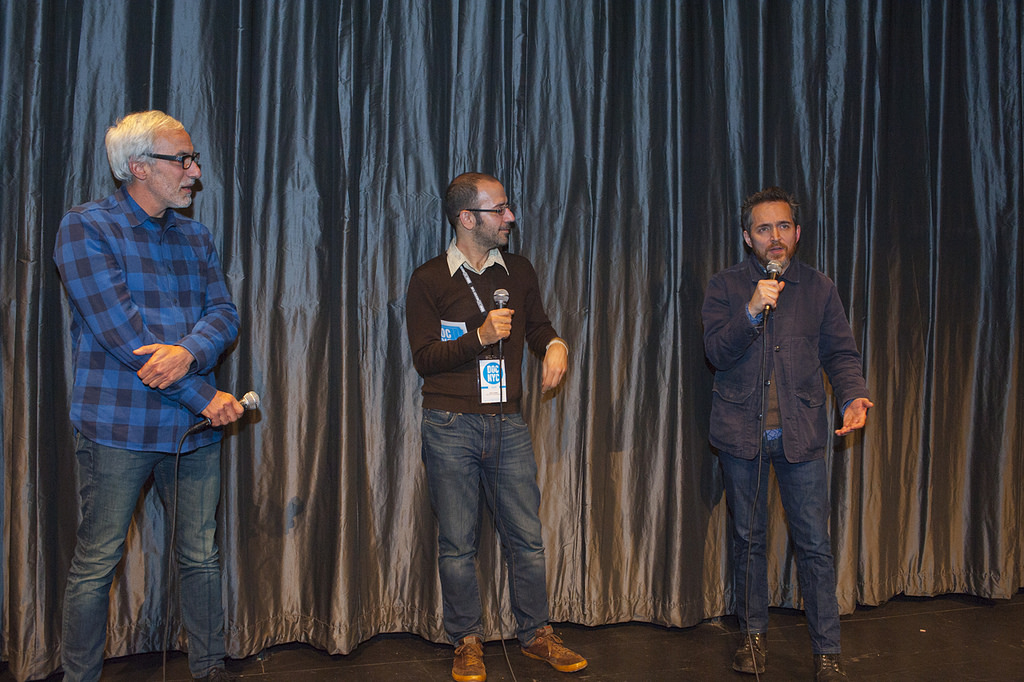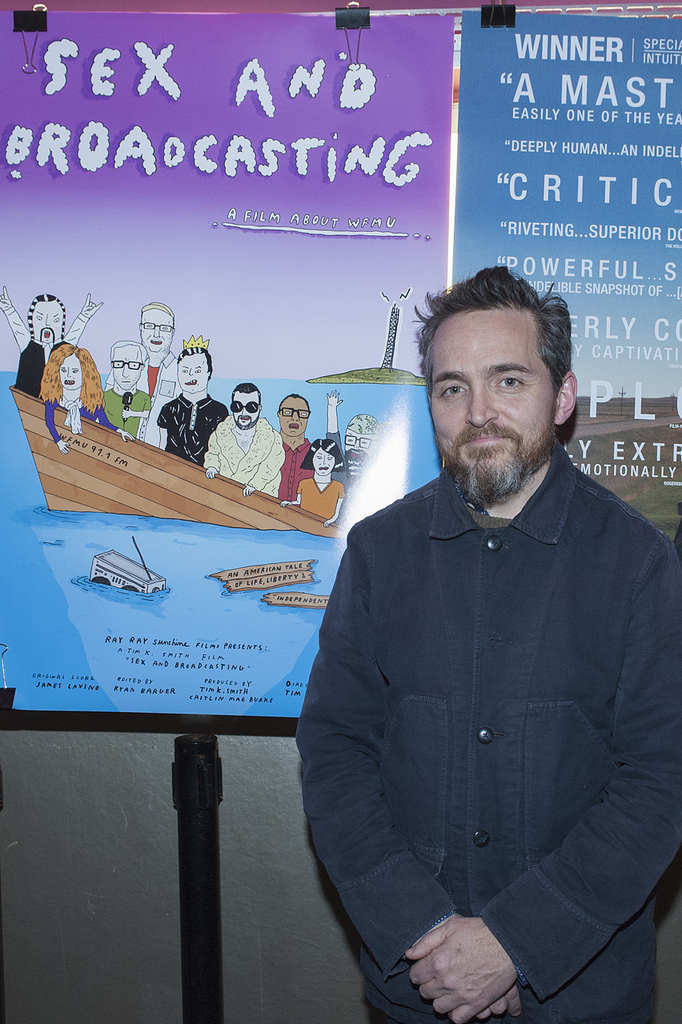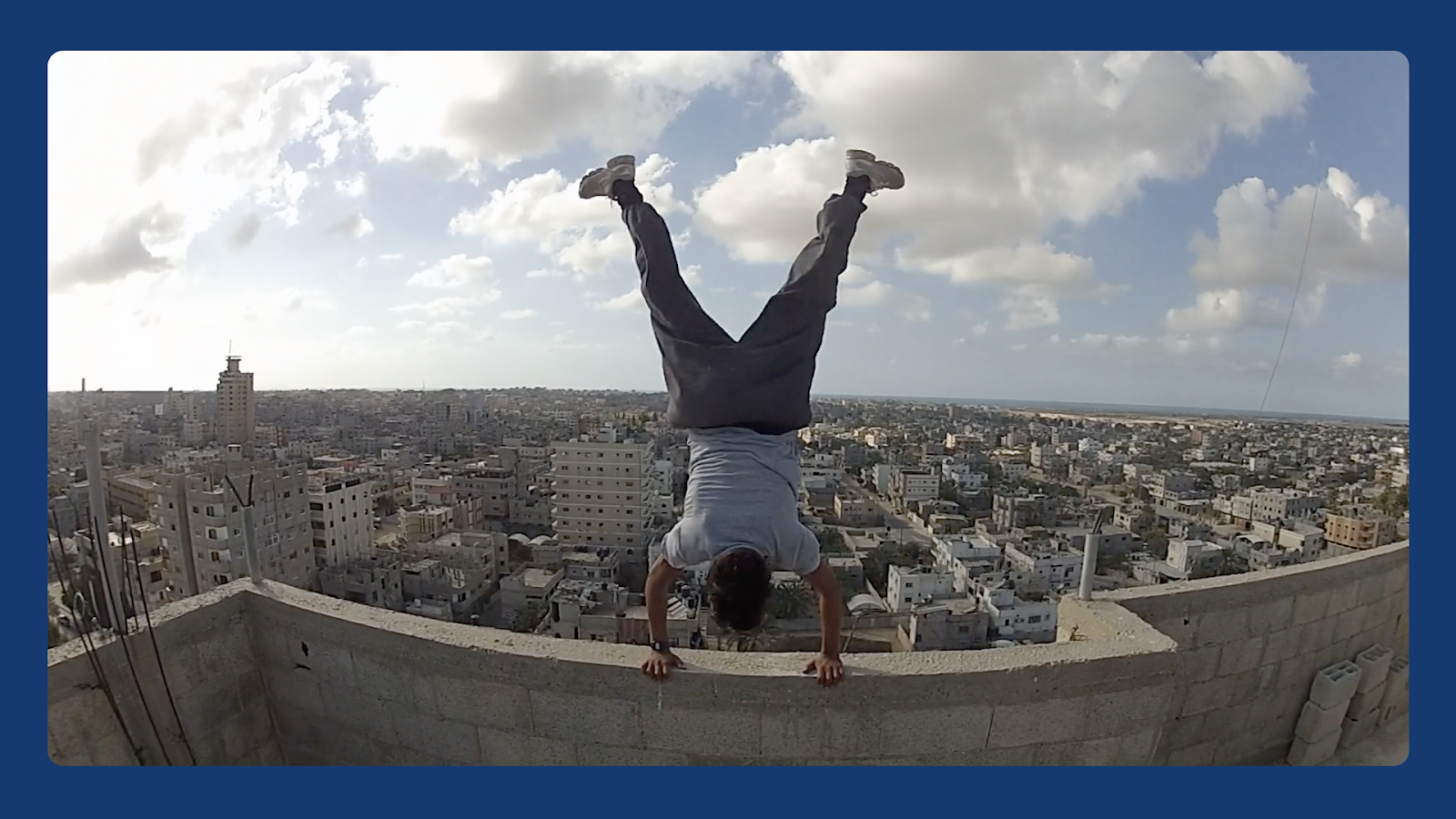Sex and Broadcasting: WMFU’s Radical Approach to Radio


Written by Laura Dattaro
From the crumbling buildings of the economically failing Upsala College was born WFMU, an independent radio station that’s survived nearly three decades on listener donations, the work of all-volunteer DJs, and playing whatever the hell they want. It’s a chaotic story told somewhat chaotically in Sex and Broadcasting, which had its world premiere Saturday night at the 5th Annual DOC NYC Festival.
The film opens with a quote from its namesake, a handbook for community radio: “A radio station should be a live place for live people to sing and dance and talk: talk their talk and walk their walk and know that they (and the rest of us) are not finally and irrevocably dead.” Station manager Ken Freedman took this message to heart, making WFMU the kind of place where anyone who can do a good show gets a spot, a station that plays records and hosts live performances on water glasses and occasionally broadcasts a listener meetup from a canoe in the middle of a New Jersey lake.
“I just want there to be a WFMU,” Freedman says in the film, calling it a place for misfits who don’t fit in, a place where you can root for the underdog. And he must really want it — Sex and Broadcasting is about WFMU, but it’s also about Freedman, the endless hours he spends at the station and working at home, the tough decisions he makes to keep his volunteer staff producing good radio, his trips to grocery stores for snacks for powering through another fundraising marathon in the face of what seems like insurmountable debt.
Director Tim Smith is not the first to attempt a documentary about WFMU, a fact that works to his advantage. His film makes good use of archival footage from previous filmmakers, giving a sense of the true depth of the station’s history. Smith himself shot three years’ of footage, much of which he hopes to make available in an online library to showcase the many pieces he had to leave out. “It was painful to edit this film,” Smith said at a panel following the screening. “FMU is so many things, and to make this particular story work so many things had to fall away.”
What’s left builds a powerful narrative arch, showing the station in its biggest debt crisis yet. In order to improve the station’s shaky signal in New York City, Freedman needs to build a booster atop a roof in midtown Manhattan. They’ve got a deadline from the FCC to pay for it and get it working, and the business on the first floor of the building the station owns is having trouble making rent. At each meeting Freedman holds, the viewer wonders if this will be the moment he announces the final demise of WFMU, a question that still looms, especially given the 2013 departure of the station’s most successful DJ, Tom Scharpling, whose Best Show on WFMU garnered national media attention. “I’m convinced he set public radio fundraising records,” Freedman said during the panel. “At the last fall marathon he raised a quarter of a million dollars in two times on the air.”
Still, WFMU plays on. “The station will always make it,” he said in answer to questions about their current financial status, which, as usual, is a bit bleak. The radio needs a new transmitter — its current one is from 1987 — to better synch up with the booster, which might mean a whole new crop of listeners in the biggest city in the country.
“I don’t want to be in that world all the time,” Smith said of the freewheeling universe WFMU has built for itself. “But I want more FMU spread out in different ways. This film is an expression of that.”
An additional screening of Sex and Broadcasting has been added to the DOC NYC lineup on Thursday evening at 9:45 p.m. Click here to visit the film’s website for more information about the film and screenings.
Laura Dattaro is a freelance reporter in New York City focusing on science and the environment. Follow her on Twitter @ldattaro

